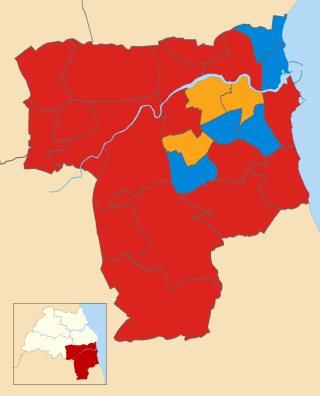
The Fiji Labour Party, also known as Fiji Labour, is a political party in Fiji. Most of its support is from the Indo-Fijian community, although it is officially multiracial and its first leader was an indigenous Fijian, Dr. Timoci Bavadra. The party has been elected to power twice, with Timoci Bavadra and Mahendra Chaudhry becoming prime minister in 1987 and 1999 respectively. On both occasions, the resulting government was rapidly overthrown by a coup.

The United Fiji Party was a political party in Fiji. It was founded in 2001 by Prime Minister Laisenia Qarase as a power base; it absorbed most of the Christian Democratic Alliance and other conservative groups, and its endorsement by the Great Council of Chiefs (Bose Levu Vakaturaga) caused it to be widely seen as the successor to the Alliance Party, the former ruling party that had dominated Fijian politics from the 1960s to the 1980s. It drew its support mainly from indigenous Fijiians.

General elections were held in Fiji in August and September 2001. The Soqosoqo Duavata ni Lewenivanua party won 18 of the 23 seats reserved for ethnic Fijians and one of three "general electorates" set aside for Fiji's European, Chinese, and other minorities. It also won 13 of the 25 "open electorates," so-called because they are open to candidates of any race and are elected by universal suffrage. The remaining five ethnic Fijian seats, and one open electorate, were won by the Conservative Alliance, one of whom was George Speight who had led the putsch against the lawful government the year before. Chaudhry's Labour Party won all 19 Indo-Fijian seats and eight open electorates. The New Labour Unity Party, formed by defectors from the FLP, won one general electorate and one open electorate. The three remaining seats were won by minor parties and independent candidates.

The National Federation Party is a Fijian political party founded by A.D. Patel in November 1968, as a merger of the Federation Party and the National Democratic Party. Though it claims to represent all Fiji Islanders, it is supported, in practice, almost exclusively by Indo-Fijians whose ancestors had come to Fiji between 1879 and 1916, mostly as indentured labourers. However, in the 2018 general election, the party recorded a considerable change in its support base due to the inclusion of more indigenous Fijian candidates.
The Suva City Council is the municipal law-making body of the city of Suva, Fiji's capital. It consists of 20 Councillors, elected for three-year terms from four multi-member constituencies called wards. Councillors, who are elected by residents, landowners, and representatives of corporations owning or occupying ratable property in Suva, elect a Lord Mayor and Deputy Lord Mayor from among their own members; they serve one-year terms and are eligible for reelection. Since the dismissal of the councillors by the interim military government the City Council is run by a Special Administrator appointed by the Ministry of Local Government.

General elections were held in Fiji between 6 and 13 May 2006.

Local elections in Fiji are held for two cities and ten towns. Each city or town has a council comprising between 8 and 20 members, elected for three-year terms, although the government announced legislation on 15 February 2006 to extend the term to four years. Each city or town council elects from among its own members a Mayor for one year. Consecutive terms are permitted.

Local elections were held in Fiji in October 2002. The results allowed the three major political parties, Soqosoqo Duavata ni Lewenivanua (SDL), the Fiji Labour Party (FLP) and the National Federation Party (NFP) to claim a victory of sorts. The elections, which take place every three years, were for two city councils and ten town councils throughout Fiji.

Local elections were held in Fiji on 22 October 2005 to elect the councils of eleven municipalities. In Suva, the elections for the Suva City Council were postponed until 12 November due to the death of two candidates; the death of a candidate in Lautoka also resulted in the poll postponement in one of the four wards.
Manoa Dobui is a former Fijian politician, who won the Samabula Tamavua Open Constituency in the House of Representatives for the Soqosoqo Duavata ni Lewenivanua (SDL) in the parliamentary election of 2001. He hails from Kabara in Lau
The 2004 Halton Borough Council election took place on 10 June 2004 to elect members of Halton Unitary Council in Cheshire, England. The whole council was up for election with boundary changes since the last election in 2002. The Labour Party stayed in overall control of the council.

Wavertree ward was an electoral division of Liverpool City Council centred on the Wavertree, Liverpool district of Liverpool.

Croxteth ward is an electoral division of Liverpool City Council. Ward in the Liverpool West Derby Parliamentary constituency.

Clubmoor ward was an electoral division of Liverpool City Council in the Liverpool Walton Parliamentary constituency.

The 1978 Hammersmith Council election took place on 4 May 1978 to elect members of Hammersmith London Borough Council in London, England. The whole council was up for election, with an extra two wards and 10 fewer councillors - and the council went in no overall control.

The 2018 Sunderland City Council election took place on 3 May 2018 to elect members of Sunderland City Council in England. The election took place on the same day as other local elections.

The 2019 Sunderland City Council election took place on 2 May 2019 to elect members of Sunderland City Council in England. The election took place on the same day as other local elections.
The fourth election to West Glamorgan County Council was held in May 1985. It was preceded by the 1981 election and followed by the 1989 election.

The 2023 Plymouth City Council election was held on 4 May 2023 to elect members of Plymouth City Council in England. It coincided with local elections across the United Kingdom.











